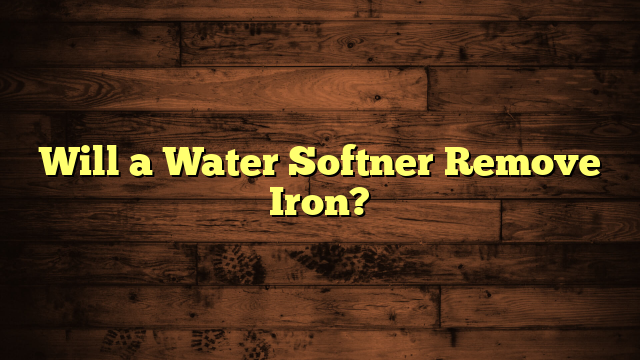What Level of Salt Do Ypu Want for Water Softner?
Isn't it interesting how the right amount of salt can make a significant difference in your water quality? When it comes to water softeners, finding the best salt level isn't just about convenience; it's about efficiency and longevity of your system. You might be wondering what that ideal level actually is and how it varies depending on the type of salt you use. Understanding these nuances could save you from potential pitfalls and guarantee your water remains soft and manageable. What factors should you consider when determining the right salt level?
Key Takeaways
- Ideal salt levels for evaporated and solar salt are recommended at ¼ to ½ full, ensuring effective softening.
- For rock salt, maintain levels between ½ to ¾ full to prevent performance issues.
- Monthly checks are advisable for evaporated and solar salt, while rock salt should be checked bi-monthly.
- Regularly monitor salt levels to prevent hard water symptoms and ensure efficient system operation.
- Refill salt when levels drop below halfway in the brine tank to maintain optimal performance.
Understanding Water Hardness
Water hardness typically varies, and understanding its composition is vital for effective water treatment. Essentially, water hardness is primarily caused by the presence of dissolved minerals, mainly calcium and magnesium.
You'll find that measuring hardness is important since it directly influences both the efficiency of your water softener and the overall quality of water.
Common hardness measurement methods include the use of test strips, titration, and electronic meters. Each of these methods provides valuable insights into your water's hardness level.
Knowing how hard your water is can help you anticipate water hardness effects, such as scale buildup in pipes and appliances, reduced soap efficiency, and potential skin irritation.
When you recognize the hardness of your water, you can make informed decisions about the necessary treatment solutions. This understanding will guide you in selecting the right type of water softener and, consequently, determining the best salt level for your system.
Types of Water Softener Salt
When selecting water softener salt, you'll encounter three main types: rock salt, solar salt, and evaporated salt.
Each type offers distinct advantages and varying levels of purity, which can affect the efficiency of your water softening system.
Understanding these differences will help you choose the right salt for your needs and guarantee peak performance.
Rock Salt Overview
What types of salt can you use for your water softener? One popular option is rock salt. Known for its cost-effectiveness, rock salt offers several benefits, including high purity and a natural source of sodium.
However, it's important to understand that rock salt isn't your only choice. Here's a quick overview of rock salt and some alternatives:
- Granular rock salt: Coarse and inexpensive, ideal for large systems.
- Solar salt: Evaporated from seawater, providing higher purity.
- Pellet salt: Compact and designed for efficient dissolving.
- Evaporated salt: Highly refined, with minimal impurities.
- Potassium chloride: A rock salt alternative for those avoiding sodium.
While rock salt benefits your softening system, it may have impurities that can accumulate in your unit.
If you seek cleaner options, consider solar salt or evaporated salt as effective rock salt alternatives.
Ultimately, your choice will depend on your preferences, budget, and specific water softening needs. Evaluating these options allows you to make an informed decision tailored to your household's requirements.
Solar Salt Benefits
While rock salt serves as a popular choice for many water softeners, solar salt presents a compelling alternative worth considering. One of the primary solar salt advantages is its purity. Solar salt is produced through the evaporation of seawater, resulting in lower impurities compared to rock salt. This means you'll get fewer contaminants that could potentially harm your water softening system.
Moreover, solar salt typically dissolves more easily, ensuring a more efficient regeneration process. In a solar salt comparison with rock salt, you'll often find that solar salt can lead to less buildup in your system, which reduces maintenance costs over time. This ease of use can save you both time and money.
Additionally, solar salt is often more environmentally friendly. The production process requires less energy compared to mining rock salt, making it a more sustainable choice.
Ultimately, choosing solar salt for your water softener can enhance system performance while providing long-term cost savings. By weighing these solar salt advantages against other options, you can make a more informed decision that best meets your water softening needs.
Evaporated Salt Quality
Understanding the quality of evaporated salt is essential for optimizing your water softener's performance. This type of salt undergoes a refining process, resulting in high purity levels.
While it offers several benefits, it's important to weigh these against its drawbacks.
Evaporated salt benefits:
- High purity, reducing mineral buildup in your system
- Effective at preventing clogs and extending the lifespan of your softener
- Dissolves quickly, promoting efficient regeneration cycles
- Typically contains fewer impurities than solar salt
- Less likely to leave residue in your water
However, evaporated salt does have its drawbacks. It can be more expensive compared to other types, which may affect your budget.
Furthermore, its rapid dissolution might lead to quicker depletion, requiring more frequent refills.
Recommended Salt Levels
For ideal water softening performance, maintaining the right salt level is essential. Monitoring your salt dosage guarantees that your system operates efficiently, prolonging its lifespan and enhancing its effectiveness. The best levels of salt in your water softener can vary, but generally, you should aim for a salt level between ¼ and ½ full in the brine tank.
Here's a quick reference table for recommended salt levels:
| Salt Type | Recommended Level | Frequency of Check |
|---|---|---|
| Evaporated Salt | ¼ to ½ full | Monthly |
| Rock Salt | ½ to ¾ full | Bi-monthly |
| Solar Salt | ¼ to ½ full | Monthly |
Keeping an eye on these levels will help you avoid performance issues. If your system runs low on salt, it can lead to inefficient softening, causing problems like scale buildup and hard water spots. Regularly check your brine tank and adjust the salt dosage as necessary to maintain those best levels, guaranteeing your water softener functions at its best.
Effects of Low Salt Levels
Low salt levels in your water softener can greatly impact its performance and efficiency. When you don't maintain the proper salt levels, you may encounter several issues that can lead to costly repairs and frequent maintenance.
Here are some potential effects of low salt:
- Reduced effectiveness: Your softener won't remove hardness minerals effectively, leading to hard water.
- Scale buildup: Hard water can cause scale to accumulate in pipes and appliances, reducing their lifespan.
- Decreased water pressure: Mineral buildup can narrow pipes, resulting in lower water pressure throughout your home.
- Increased soap usage: You'll find yourself using more soap and detergent, as they won't lather well in hard water.
- Frequent maintenance issues: Low salt can affect the softener's regeneration process, requiring more frequent checks and servicing.
Effects of High Salt Levels
High salt levels in your water softener can frequently lead to a range of complications that compromise both the unit's functionality and your household's water quality. When salt toxicity occurs, it can impair the efficiency of the softening process, resulting in hard water issues and potential damage to your plumbing fixtures. Moreover, excessive salt can create a brine discharge that adversely affects local water systems, raising concerns about its environmental impact.
| Complications | Description |
|---|---|
| Reduced Efficiency | High salt levels hinder the softening process, leading to hard water. |
| Plumbing Damage | Corrosion and buildup can occur, affecting pipes and fixtures. |
| Environmental Concerns | Brine discharge impacts local ecosystems, risking salt toxicity in waterways. |
Understanding these effects is vital for maintaining water quality and ensuring your softener operates effectively. Regular monitoring of salt levels can help mitigate these risks, promoting a healthier home environment while minimizing your ecological footprint.
Maintaining Your Water Softener
To guarantee your water softener operates efficiently, it's essential to understand the types of salt available and how they affect performance.
Establishing a regular maintenance schedule can help prevent issues before they arise, keeping your system in peak condition.
When problems do occur, knowing how to troubleshoot common issues will save you time and money in repairs.
Salt Types Explained
Understanding the different types of salt available for water softeners is vital for ideal maintenance and performance. The salt composition you choose greatly impacts the efficiency of your water treatment system.
Here's a breakdown of common salt types:
- Rock Salt: The most economical option, it contains impurities that can affect performance.
- Solar Salt: Obtained through evaporated seawater, it's purer than rock salt and dissolves easily.
- Evaporated Salt: The purest form, with minimal impurities, this salt is ideal for best water softening.
- Potassium Chloride: An alternative to sodium chloride, it's suitable for those concerned about sodium intake.
- Salt Pellets: These compacted pellets minimize bridging and clogging in the brine tank.
Choosing the right type of salt is vital for maintaining your water softener. Each option has unique characteristics and varying levels of purity, which can affect the efficiency of the softening process.
Regular Maintenance Schedule
Establishing a regular maintenance schedule for your water softener is essential to guaranteeing its finest performance and longevity. By committing to this routine, you can prevent potential issues and maximize efficiency.
Start with regular inspections every three to six months. During these inspections, check for any signs of wear or leaks and verify that all components, including the brine tank, are functioning correctly.
Salt replenishment is another critical aspect of your maintenance schedule. Keep an eye on the salt levels in the brine tank, topping it off as necessary to maintain peak performance. It's generally advisable to refill the salt when it dips below the halfway mark. Using high-quality salt will also help prevent bridging and mushing, which can hinder your system's effectiveness.
Additionally, consider cleaning your water softener annually. This process typically involves flushing the system and removing any accumulated residue.
Troubleshooting Common Issues
Water softeners, like any mechanical system, can encounter various issues that may disrupt their performance.
Regular salt maintenance is essential to guarantee your system operates effectively. If you notice any of the following problems, it's time to implement some troubleshooting tips:
- Salt Bridges: A hard crust forms above the water level, preventing salt from dissolving.
- Low Water Levels: Insufficient water in the brine tank can hinder regeneration.
- Foul Odors: Unpleasant smells may indicate bacterial growth or stagnant water.
- Softened Water Issues: If you're experiencing hard water, it might signal a malfunction.
- Control Valve Problems: An unresponsive control valve can stop your softener from performing its duties.
To address these issues, start by checking the salt level and confirming it's adequate.
If a salt bridge forms, break it up gently.
Clean any buildup and confirm the tank is filled with water.
Regularly inspect the control valve for clogs or malfunctions.
Signs Your Softener Needs Salt
When your water softener runs low on salt, you'll likely notice several telltale signs indicating it's time to refill. One of the most apparent salt depletion signs is the return of hard water symptoms, such as soap not lathering effectively and spots appearing on dishes and glassware. If you start experiencing these issues, it's a clear softener performance indicator that your system isn't working at its best due to insufficient salt.
Another sign to watch for is an increase in scale buildup in your appliances or plumbing fixtures. This occurs because the softener can no longer effectively remove minerals like calcium and magnesium from the water.
Furthermore, if you hear your water softener running more frequently without achieving the desired results, this can indicate that it's struggling to recharge the resin beads, often due to a lack of salt.
Finally, checking the salt levels visually is crucial. If you peek into the brine tank and see little to no salt, it's a straightforward signal that you need to replenish.
Keeping an eye on these signs can help guarantee your water softener remains efficient and effective in maintaining soft water.
Tips for Choosing Salt
Choosing the right salt for your water softener is essential for ideal performance and longevity. The quality of the salt you select directly affects how well your system operates. Here are some tips to help you make an informed choice:
- Opt for high-purity salt: Choose salt with minimal impurities to prevent clogs and maintain efficiency.
- Consider solar salt: This type is often purer and dissolves more easily, enhancing the softening process.
- Evaluate your storage conditions: Verify your salt storage area is dry and well-ventilated to prevent moisture absorption that can lead to clumping.
- Check for compatibility: Not all softeners work well with every type of salt; consult your manufacturer's guidelines.
- Monitor your usage: Regularly assess how much salt you're using to avoid running low and compromising your water quality.
Frequently Asked Questions
Can I Use Regular Table Salt in My Water Softener?
You shouldn't use regular table salt in your water softener. The salt type impacts efficiency and longevity; consider table salt alternatives like solar salt or evaporated salt, which are specifically formulated for superior performance in softeners.
How Often Should I Check My Salt Levels?
Think of salt maintenance as a safety net for your water system. You should check salt levels monthly, ensuring ideal performance. Regular checking frequency prevents issues and keeps your water softener running smoothly for years.
What Happens if I Run Out of Salt?
If you run out of salt, your water softener won't function properly, leading to hard water issues. Consider salt alternatives and follow maintenance tips to guarantee consistent performance and prevent damage to your plumbing and appliances.
Is There a Difference Between Solar and Evaporated Salt?
Yes, there's a difference. Solar salt benefits include lower impurities and cost-effectiveness, while evaporated salt differences lie in its higher purity, making it ideal for sensitive systems. Choose based on your softening needs and budget.
Can I Mix Different Types of Salt in My Softener?
You can mix different salt types in your softener, but it's essential to take into account their solubility and purity. Mixing salts may affect efficiency, so make sure you're using compatible types for best performance.
Conclusion
To keep your water softener running efficiently, maintaining the right salt level is key. For instance, if you let your evaporated salt drop below ¼ full, you might experience scale buildup, leading to costly repairs. Regularly monitoring your salt levels and understanding the type you're using can save you time and money in the long run. By staying proactive, you can guarantee your home's water quality remains excellent and extend the lifespan of your system.







